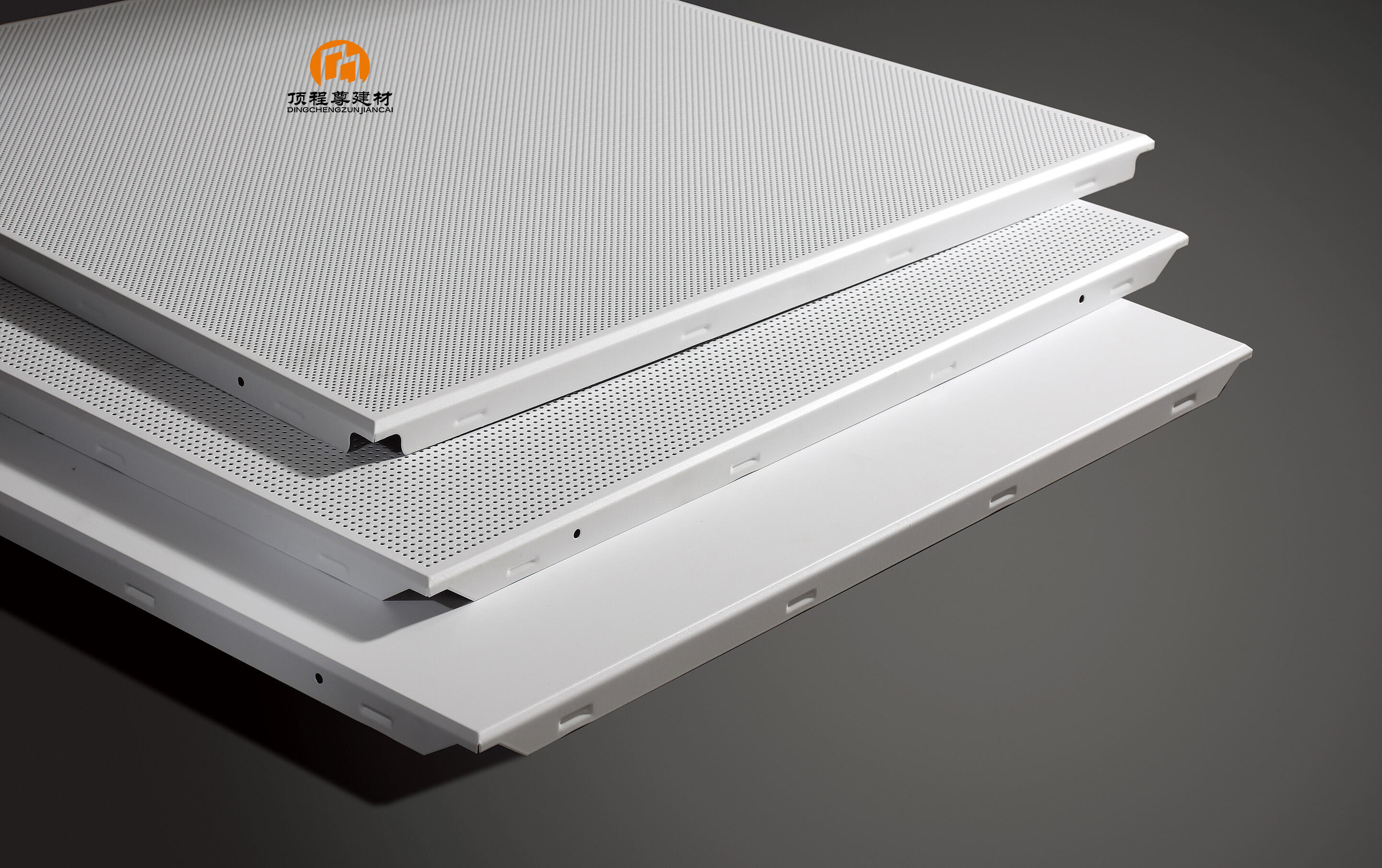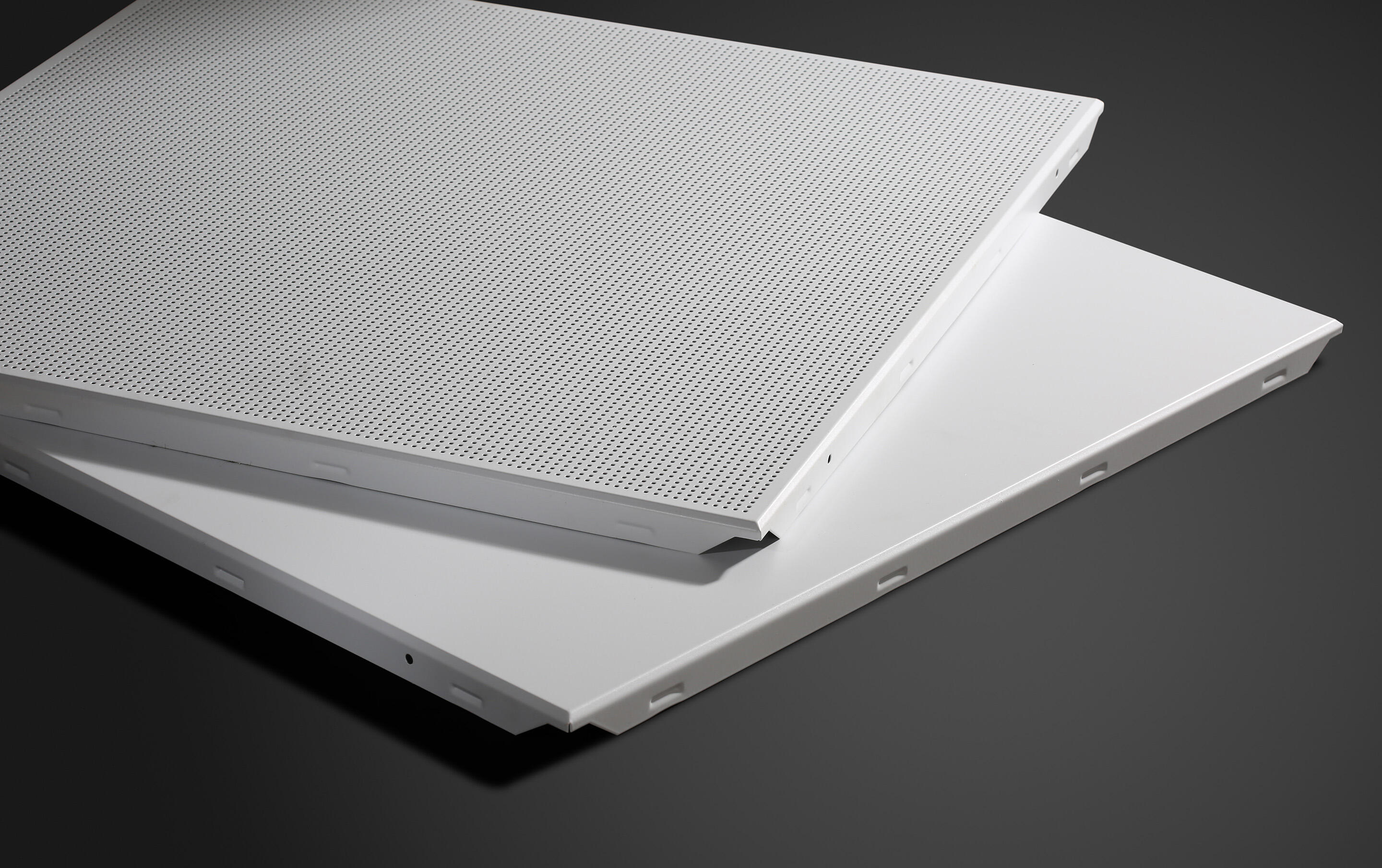The Science Behind Fire-Resistant and Long-Lasting Aluminum Ceiling Panels
Aluminum ceiling panels have become a preferred choice for commercial and residential spaces due to their exceptional fire resistance and durability. These panels combine advanced material science with innovative engineering to meet stringent safety standards while maintaining aesthetic appeal. The unique properties of aluminum, when enhanced through specialized treatments and panel construction techniques, create ceiling solutions that outperform traditional materials in both safety and longevity. From high-rise buildings to industrial facilities, aluminum ceiling panels provide reliable protection and enduring performance that architects and designers trust for demanding applications. Understanding what makes these panels resistant to fire and wear reveals why they've become indispensable in modern construction and interior design projects.
Material Composition and Fire Resistance
Aluminum's Natural Fire-Resistant Properties
Aluminum ceiling panels benefit from the metal's inherent characteristics that make it naturally fire-resistant without additional chemical treatments. With a melting point of 660°C (1220°F), aluminum maintains structural integrity at temperatures that would compromise many other building materials. When exposed to heat, aluminum forms a protective oxide layer that slows further oxidation, unlike steel which can warp and weaken under high temperatures. This oxide layer acts as a thermal barrier, preventing the rapid temperature transfer that fuels fire spread in building materials. Modern aluminum ceiling panels often incorporate alloy blends that enhance these natural properties, with magnesium and silicon additions that improve high-temperature performance. The non-combustible nature of aluminum means it won't contribute fuel to fires or release toxic smoke, a critical factor in building safety certifications and insurance considerations for commercial spaces.
Fire-Retardant Core Materials in Composite Panels
Premium aluminum ceiling panels achieve even greater fire resistance through advanced core materials engineered specifically for fire safety. Mineral wool cores between aluminum layers provide exceptional thermal insulation that can withstand temperatures exceeding 1000°C while maintaining panel stability. Some manufacturers use fire-resistant ceramic coatings on the aluminum surfaces that expand when heated, creating an insulating char layer that protects the underlying material. Composite panels may incorporate intumescent layers that swell under extreme heat, sealing gaps and preventing fire penetration through ceiling systems. These core technologies work synergistically with aluminum's natural properties to create ceiling solutions that meet Class A fire ratings according to international building codes. The combination of non-combustible aluminum with specialized core materials produces ceiling panels that actively resist fire spread rather than simply not contributing to it, a crucial distinction in life safety applications.

Structural Design for Enhanced Durability
Protective Surface Treatments Against Wear
The long-term durability of aluminum ceiling panels stems from sophisticated surface treatments that shield the material from environmental and mechanical damage. Anodized finishes create an electrochemical oxide layer that's harder than raw aluminum, providing scratch resistance that maintains appearance in high-traffic areas. Powder coating applications offer even greater protection, with advanced formulations resisting chips, abrasions, and impacts from routine maintenance activities. Some premium aluminum ceiling panels feature PVDF (polyvinylidene fluoride) coatings that provide exceptional resistance to chemicals, UV radiation, and extreme temperature fluctuations. These surface treatments not only preserve aesthetic qualities but also maintain the panel's structural integrity by preventing corrosion initiation points that could compromise the metal over time. The combination of mechanical protection and environmental resistance ensures aluminum ceiling panels retain their functionality and appearance for decades, even in challenging installations like swimming pools or industrial kitchens.
Engineered Panel Construction for Longevity
The durability of aluminum ceiling panels extends beyond surface treatments to their fundamental structural engineering. Interlocking edge designs maintain alignment while allowing for thermal expansion, preventing the warping or buckling that plagues rigid ceiling systems. Reinforced honeycomb or corrugated core structures provide exceptional strength-to-weight ratios, enabling large panel spans without sagging over time. Manufacturers optimize panel thickness based on application requirements, with heavier-gauge aluminum used in high-impact zones while maintaining overall lightweight characteristics. The integration of stiffening ribs or embossed patterns in the aluminum sheets enhances rigidity without adding substantial weight to ceiling frameworks. These construction features work together to create panels that withstand years of environmental stresses, structural movements, and cleaning cycles without performance degradation. The result is a ceiling solution that maintains its precise installation tolerances and visual perfection throughout its service life, outperforming traditional ceiling materials in long-term durability assessments.
Performance in Extreme Conditions
Moisture and Corrosion Resistance
Aluminum ceiling panels demonstrate exceptional performance in humid or wet environments where other materials would degrade rapidly. The natural oxide layer that forms on aluminum provides inherent corrosion resistance that's further enhanced by modern coating technologies. Unlike steel, aluminum won't rust when exposed to moisture, making it ideal for bathrooms, swimming pool enclosures, and coastal properties. Specialized alloy formulations increase resistance to salt spray corrosion, crucial for marine applications or food processing facilities. The non-porous nature of aluminum prevents water absorption that could lead to mold growth or structural weakening in ceiling systems. Even when installed in areas with frequent condensation or temperature swings, high-quality aluminum ceiling panels maintain dimensional stability without warping or discoloration. This moisture resistance contributes significantly to both durability and fire safety, as water-damaged ceiling materials can become fire hazards in themselves.
Thermal Stability and Expansion Management
The engineering of aluminum ceiling panels accounts for the metal's thermal expansion characteristics to prevent performance issues in varying temperatures. Advanced panel designs incorporate expansion joints and sliding clip systems that accommodate dimensional changes without creating stress points. Aluminum's high thermal conductivity actually benefits ceiling performance by helping regulate surface temperatures and prevent hot spots that could impact fire ratings. In fire scenarios, this thermal conductivity helps distribute heat across panels rather than allowing concentrated heating that could compromise structural integrity. Manufacturers carefully calculate alloy compositions and panel sizes to ensure thermal movement remains within safe parameters for each installation environment. This attention to thermal performance ensures aluminum ceiling panels maintain their precise fit and flawless appearance whether installed in arctic climates or desert environments, without the cracking or separation issues that affect less stable materials.
Compliance and Testing Standards
International Fire Safety Certifications
High-quality aluminum ceiling panels undergo rigorous testing to meet global fire safety standards that verify their performance claims. UL 94 ratings assess flammability characteristics, with the best panels achieving V-0 classification indicating self-extinguishing properties. ASTM E84 evaluations measure surface burning characteristics, where premium aluminum ceiling panels typically achieve Class A ratings for flame spread and smoke development. European classifications like EN 13501-1 provide additional fire performance data important for international projects. These certifications aren't simply marketing claims but reflect actual laboratory testing where panels are exposed to controlled fires and monitored for structural integrity, flame spread, and smoke toxicity. Reputable manufacturers make these test reports available to specifiers, providing transparency about how their aluminum ceiling panels will perform in real fire scenarios. The comprehensive nature of these certifications gives architects and builders confidence that specified panels will meet local building code requirements for fire safety.
Durability Testing Protocols
Beyond fire resistance, aluminum ceiling panels must prove their durability through standardized testing that simulates years of use in accelerated conditions. QUV accelerated weathering tests expose panels to intense UV radiation and moisture cycling to predict long-term colorfastness and surface degradation. Salt spray testing evaluates corrosion resistance by creating aggressive marine environments that would destroy inferior materials. Impact resistance tests measure how panels withstand physical blows without denting or cracking, important for high-traffic areas. Many manufacturers conduct additional proprietary testing that exceeds basic standards, particularly for specialized applications like healthcare or transportation facilities. These durability tests complement fire performance evaluations to provide a complete picture of how aluminum ceiling panels will behave over their entire service life. The best products in the market combine outstanding fire test results with equally impressive durability data, demonstrating true all-around performance that justifies their specification in demanding projects.
FAQ
How do aluminum ceiling panels compare to steel in fire resistance?
Aluminum maintains strength at higher temperatures and doesn't warp like steel, while being naturally non-combustible without fireproofing treatments.
Can fire-resistant aluminum ceiling panels still be decorative?
Yes, modern manufacturing allows for virtually any finish or pattern while maintaining fire ratings through specialized coatings and core materials.
What maintenance do aluminum ceiling panels require to preserve fire ratings?
Only occasional cleaning with non-abrasive methods is needed as the fire resistance is built into the material composition.


